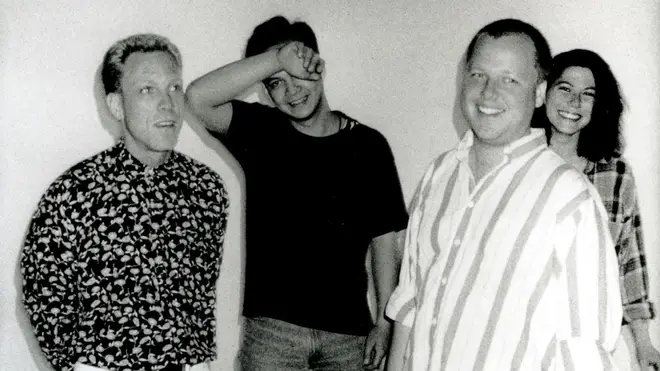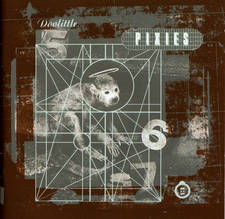Why Pixies' Monkey Gone To Heaven is the greatest song about the environment
17 April 2024, 17:45

Pixies - Monkey Gone To Heaven (Official Video)
In 1989 Black Francis wrote a lyric about global warming that's still relevant 30 years later.
Pixies were a huge hit in the UK when they first appeared in the late 1980s.
The Boston band - which comprised Charles Thompson (aka Black Francis), Kim Deal, Joey Santiago and David Lovering - hadn't attracted much attention in their native America, but had come to the attention of the British label 4AD, who issued their debut mini-album, Come On Pilgrim, in 1987.
Their first full-length album was 1988's Surfer Rosa, recorded with alternative rock icon Steve Albini, but for the follow-up, the band collaborated with producer Gil Norton to get a slicker sound.

The result was Doolittle, which crashed into the UK album chart at Number 8 in the Spring of 1989. The album bears some of the band's most enduring tracks: Debaser, Here Comes Your Man, and the always-raucous Tame.
But it was the first single from the record that is still relevant today. While a lot of Black Francis's lyrics were about myths, bible stories, UFOs and the odd tale of lust and longing, Monkey Gone To Heaven was about a very pressing concern: global warming.

Climate change is not a new thing. Ecology had become more of a talking point in the 1970s, but caring for the environment was still seen as a niche, slightly "hippie-ish" pastime.
By the following decade, however, it was becoming clear from research and data analysis that the world was hotting up. Issues such as the destruction of rainforests and the use of ozone layer-damaging CFC gases (chlorofluorocarbons) in industrial and commercial use became more commonplace and many celebrities and musicians began to bring wider attention to the problems the planet faced.

There was also the issue of the "Syringe Tide", an environmental disaster that saw tons of medical waste wash up on the shores of New Jersey and New York, causing the local beaches to be closed.
For Black Francis, there was a feeling that the old order was being upset - especially with the ancient gods of the sea. "The sky and the ocean are both very ancient, spiritual and mythological places," he told NME in April 1989. "And I'm just trying to talk about them in surreal kinds of ways."
Monkey Gone To Heaven opens with a tale of an "underwater guy who controlled the sea" who comes a cropper from (presumably) the "Syringe Tide" and the other effluents that were being dumped into the Atlantic Ocean. "The man dying from the sludge in the water in New Jersey is just me getting mythological," said Francis. "It's Neptune that I picture dying from the pollution."
The second verse concerns the damage to the ozone layer, claiming that "everything is gonna burn, we'll all take turns, I'll get mine too."

This worked on two levels for Black Francis: "There's a big hole in the ozone layer scientifically, but the unreal side is that there's a hole in the sky and the sky means a lot of things to lots of people in different cultures."
The song peaks with the frontman screaming a nursery-rhyme style lyric that invoked some weird numerology: "If man is 5, then the devil is 6, and if the devil is 6, then God is 7!"
"I just remember someone telling me of the supposed fact that in the Hebrew language, especially in the Bible, you can find lots of references to man in the 5th and Satan in the 6th and God in the 7th." Francis explained to Alternative Press. "I didn't go to the library and figure it out."
When Monkey Gone To Heaven was released as a single on 20 March 1989, the cover depicted a benign simian with a halo over its head.
The image was cute and mystical at the same time, but the dark beauty of Simon Larbalestier's photography covers the harsh truth - that monkey has already gone to heaven. It's stuffed.














